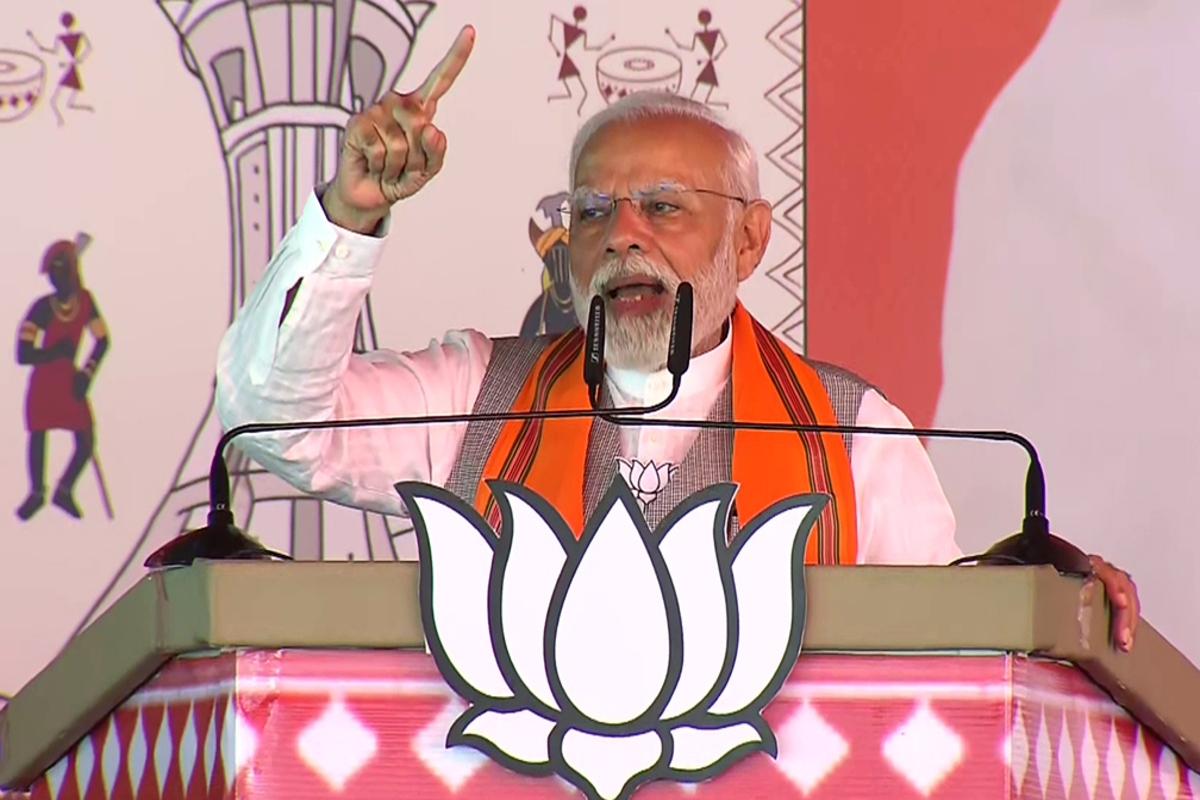Rahul Gandhi hits out at PM, Adani in Rae Bareli
Congress leader Rahul Gandhi on Friday hit out against Prime Minister Narendra Modi and Industrialist Gautam Adani on the second day of his Rae Bareli visit.
As the general elections near, the political landscape is rife with speculation about the potential policy directions of Prime Minister Narendra Modi in his third term which polls suggest is a certainty.

Prime Minister Narendra Modi addresses during an election rally (ANI Photo)
As the general elections near, the political landscape is rife with speculation about the potential policy directions of Prime Minister Narendra Modi in his third term which polls suggest is a certainty. One focal point of discussion revolves around labour reforms, an issue that has garnered attention since the approval of new labour codes by Parliament in 2020. The Modi government’s emphasis on labour reforms appears to be a strategic move, hinted at by a party spokesperson who suggests that if re-elected, Mr Modi may prioritise the implementation of these reforms. The proposed changes, however, face resistance from workers’ unions.
On the surface, the government argues that consolidating 29 labour laws into four codes will streamline regulations, ensuring that over 500 million workers in India receive a minimum wage and social security benefits. It is a narrative that resonates with the vision of economic development and poverty eradication that Mr Modi has outlined for his next term. However, the devil lies in the details, and opposition from trade unions suggests a deeper concern regarding the balance between employer and labour rights. The crux revolves around provisions for easier hiring and firing, which, while potentially beneficial for employers, raises concerns about job security for workers. As the government seeks to create a more flexible labour market, critics argue that this could lead to exploitation and an erosion of workers’ rights. The delicate task ahead lies in finding a middle ground that fosters economic growth without compromising the well-being of the workforce. The timing of these reforms is notable, with the government indicating a push post-election. This strategic delay, according to trade union representatives, echoes a similar tactic employed by the government in response to farmer protests two years ago. The protests resulted in the repeal of three agricultural laws, demonstrating the efficacy of organised resistance. The looming threat of nationwide protests against perceived anti-labour policies highlights the tense relationship between the government and trade unions. Mr Harbhajan Singh, general secretary of Hind Mazdoor Sabha, voices the concerns of labour advocates, emphasising that the unions are prepared to resist any attempt to skew labour laws in favour of employers.
Advertisement
This sets the stage for a potential standoff between the government’s economic agenda and the steadfastness of the labour movement. In addition to labour reforms, the BJP spokesperson’s mention of bilateral trade deals adds another dimension to Mr Modi’s potential agenda. With aspirations of assuming global leadership, India is already in negotiations for free trade agreements, including with countries like Britain. These agreements could open new avenues for economic growth, provided they are structured with the interests of the Indian workforce in mind. Striking the right balance between economic reforms and safeguarding the rights of workers is crucial for sustained growth and social harmony. The upcoming elections will not only determine the political trajectory of the nation but will also influence the course of labour relations, making it a pivotal moment in India’s socio-economic narrative.
Advertisement
Advertisement